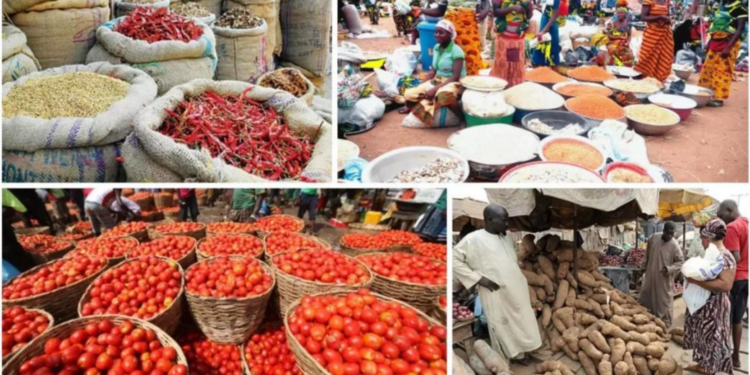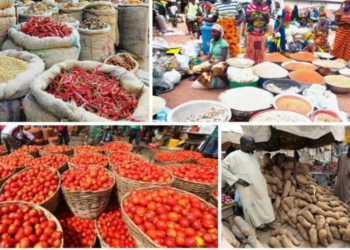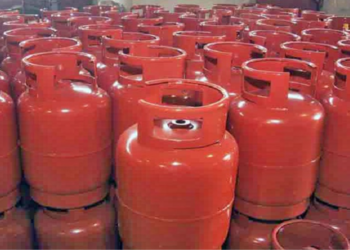Nigeria’s inflation rate eased to 23.71% in April 2025, down from 24.23% recorded in March.
This is according to new data by the National Bureau of Statistics (NBS) released on Thursday.
The latest figure marks a modest decline of 0.52 percentage points, offering a glimmer of hope amid persistent economic challenges and rising cost-of-living pressures across the country.
According to the NBS, “On a year-on-year basis, the headline inflation rate was 9.99% lower than the 33.69% recorded in April 2024. This shows that the year-on-year inflation rate decreased in April 2025 compared to the same period last year, though based on a different reference year (November 2009 = 100).”
On a month-on-month basis, inflation stood at 1.86% in April 2025, down from 3.90% in March, representing a 2.04 percentage point decline.
This indicates that the rate at which prices increased in April slowed compared to the previous month.
Core Inflation
According to the NBS, the country’s Core inflation stood at 23.39% in April 2025 on a year-on-year basis; it declined by 3.45% when compared to the 26.84% recorded in April 2024.
On a month-to-month basis, the Core Inflation rate was 1.34% in April 2025, down by 2.39% compared to March 2025 (3.73%), the report revealed.
The average twelve-month annual inflation rate was 24.91% for the twelve months ending April 2025, which was 2.07% points higher than the 22.84% recorded in April 2024.
Urban vs Rural inflation trends
The report revealed that urban inflation stood at 24.29% year-on-year, 11.71 percentage points lower than the 36.00% recorded in April 2024.
Month-on-month, the urban inflation rate dropped to 1.18% in April 2025, compared to 3.96% in March.
The twelve-month average for urban inflation was 30.41%, slightly higher than the 30.02% recorded in April 2024.
Rural inflation was reported at 22.83% year-on-year, an 8.81 percentage point drop from the 31.64% recorded in April 2024.
On a month-on-month basis, rural inflation stood at 3.56%, down from 3.73% in March. The twelve-month average for rural inflation was 26.29%, slightly lower than the 26.38% recorded in the same month last year.
Food inflation sees sharp decline
Food inflation in April 2025 was 21.26% year-on-year, a significant 19.27 percentage point drop from 40.53% in April 2024.
The NBS attributed this sharp decline largely to a base-year effect resulting from a methodology change.
Month-on-month, food inflation declined slightly to 2.06% in April from 2.18% in March.
The NBS noted that the drop was driven by reduced prices in staple food items such as maize flour, wheat grain, dried okro, yam flour, soya beans, rice, bambara beans, and brown beans.
What experts said:
Several economic analysts had earlier predicted a slight easing of the inflation rate for April.
Head of Research at Afrinvest West Africa, Damilare Asimiyu, told Nairametrics that the moderation was expected due to a favourable base effect.
“April 2024 marked a significant inflationary peak. On a year-on-year basis, this will create a downward bias even if prices continue to trend upward on a monthly basis,” Asimiyu noted.
Key drivers of inflation
According to the NBS, the main drivers of headline inflation on a year-on-year basis were:
- Food & Non-Alcoholic Beverages – 9.49%
- Restaurants and Accommodation Services – 3.06%
- Transport – 2.53%
- Housing, Water, Electricity, Gas & Other Fuels – 2.00%
The Central Bank of Nigeria (CBN) is expected to weigh this latest data ahead of its upcoming 300th Monetary Policy Committee (MPC) meeting taking place next week.























